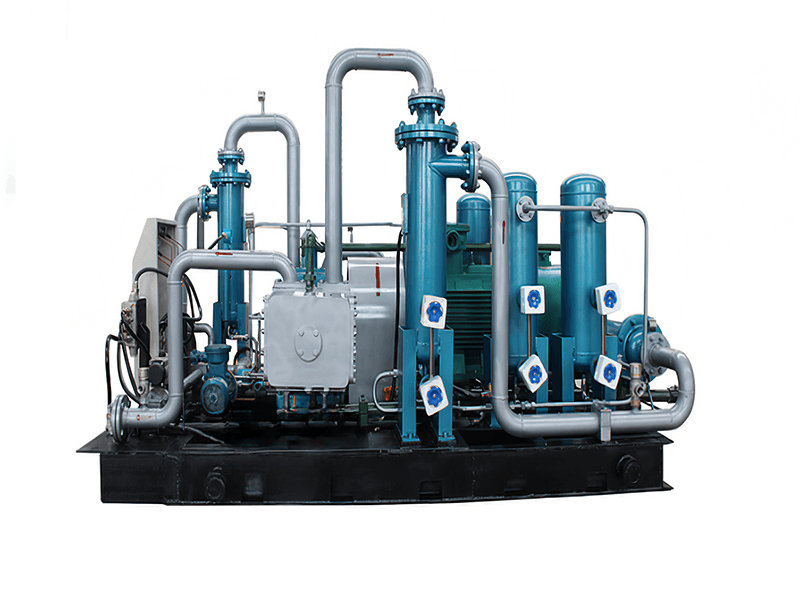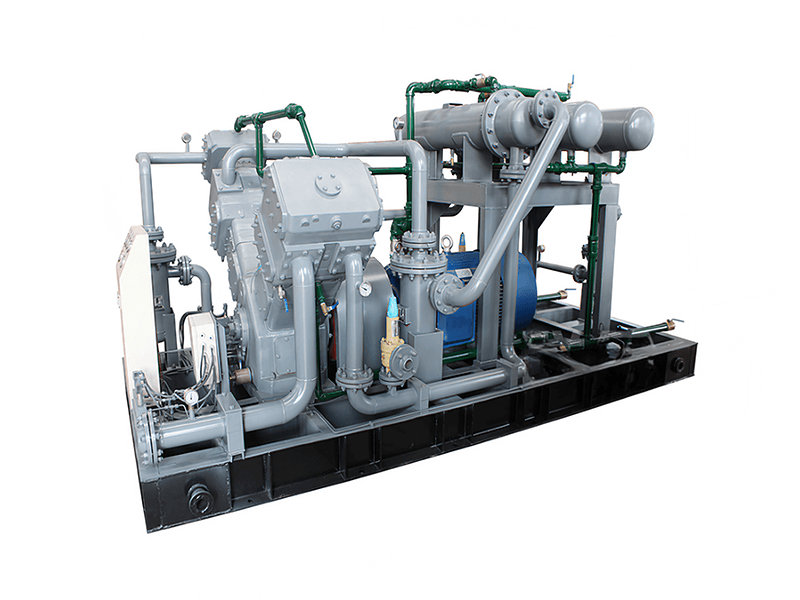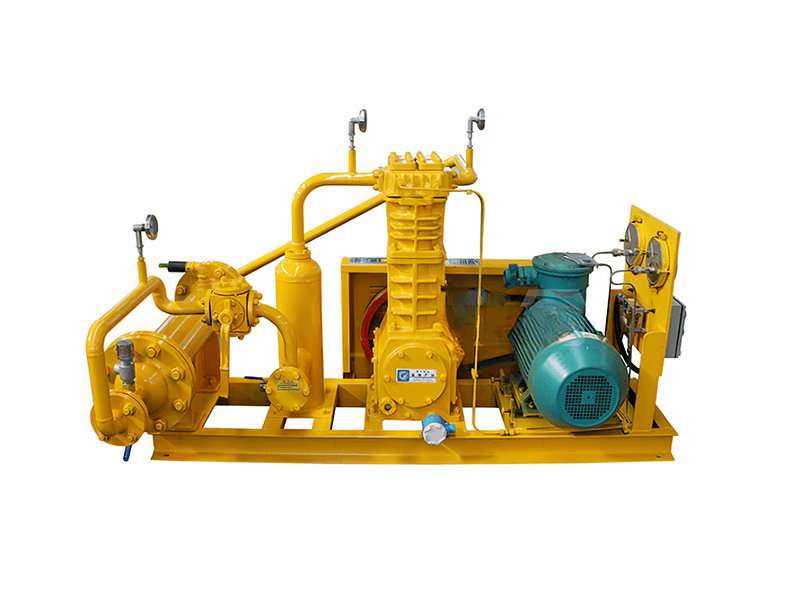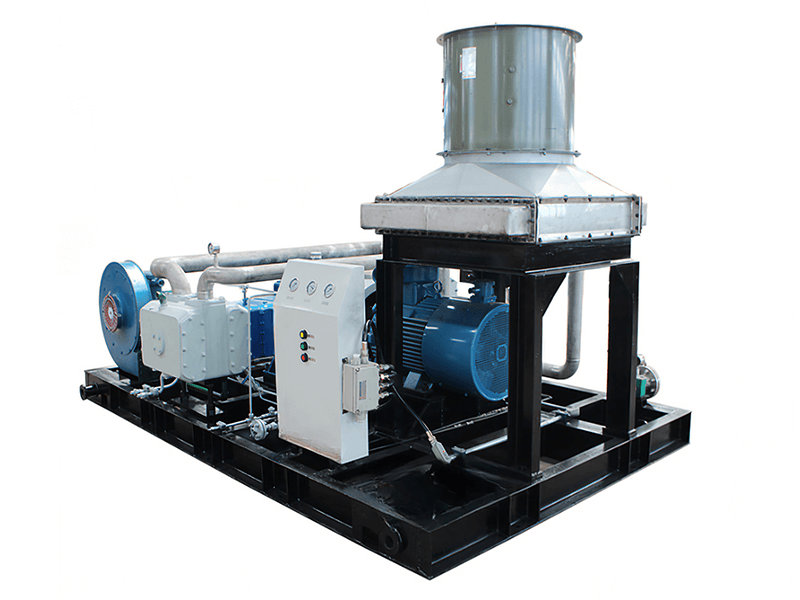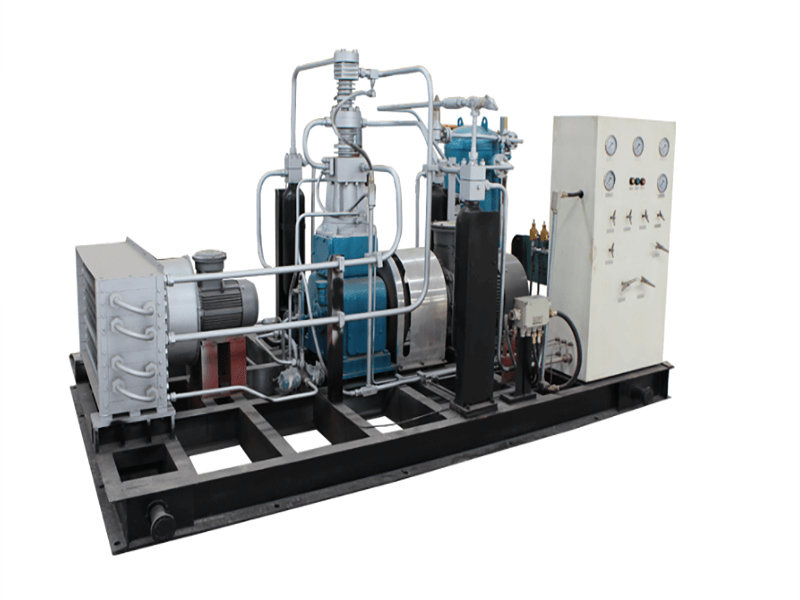【媚魔导航】最新入口
-

Methods and steps for natural gas recovery
Jun 14, 2024 -

Distribution of natural gas compressor manufacturers in China, and price ranges
Jul 15, 2024 -

The working principles of chlorine gas compressor
May 24, 2024 -

Types of chlorine compressors, and their price examples
May 14, 2024 -

Features and price range of reciprocating piston chlorine compressors
May 21, 2024 -
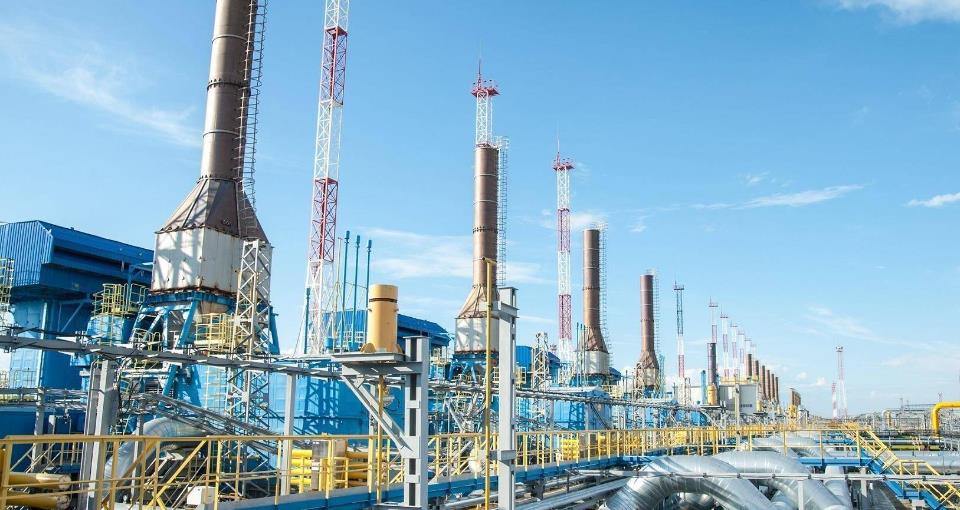
Cng Substation Compressors Prices And Manufacturers
Apr 11, 2024
媚魔导航【乾坤易变】Apr 11, 2024
by:Anhui Shengnuo Compressor Manufacturing Co.,Ltd
Follow Us:
There are several types of compressors used specifically for natural gas applications. Here are some common types of natural gas compressors:
1. Reciprocating Compressors: Reciprocating compressors are widely used in natural gas transmission and distribution systems. They operate by using a piston-cylinder arrangement to compress the gas. Reciprocating compressors can handle a wide range of flow rates and pressures, making them suitable for various applications within the natural gas industry.
2. Rotary Screw Compressors: Rotary screw compressors are commonly used in natural gas gathering and processing facilities. They use helical screws to compress the gas. Rotary screw compressors offer continuous and smooth operation, making them suitable for high-capacity applications.
3. Centrifugal Compressors: Centrifugal compressors are used for large-scale natural gas compression, typically in high-pressure applications. They utilize centrifugal force to compress the gas. Centrifugal compressors are known for their high flow rates and efficiency, making them ideal for pipeline and gas storage operations.
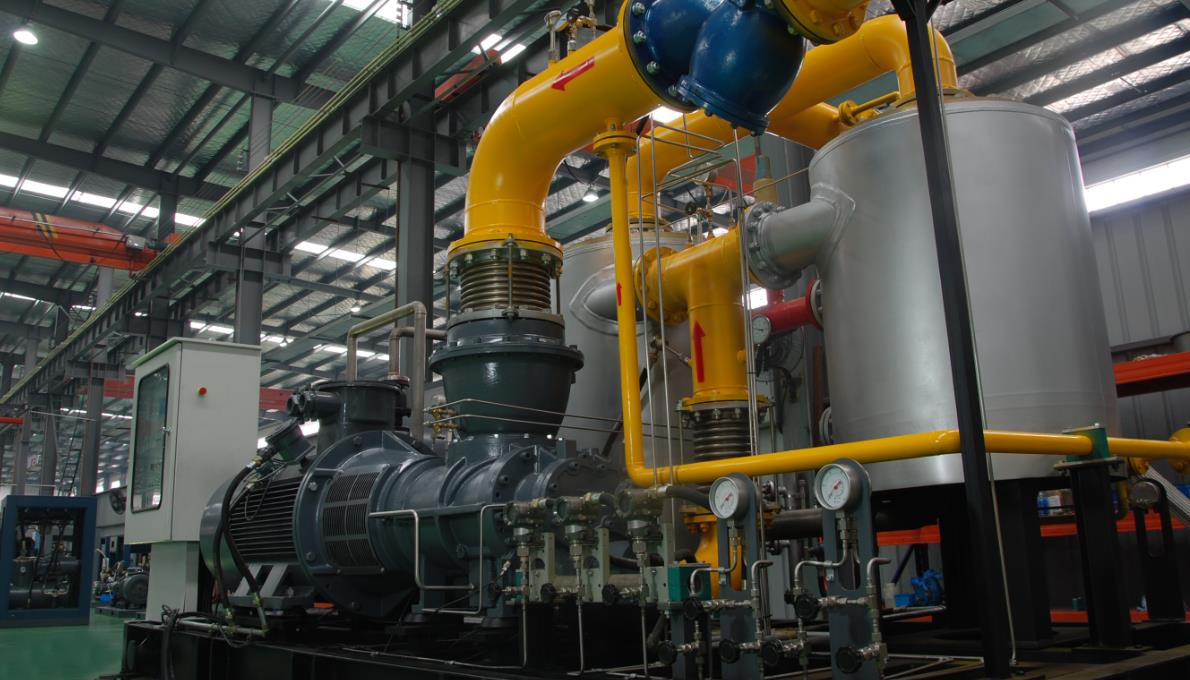
4. Turboexpanders: Turboexpanders are used in natural gas processing plants to recover energy from high-pressure gas streams. They work by expanding the gas through a turbine, which converts the gas's pressure energy into mechanical energy. Turboexpanders are often employed in natural gas liquefaction processes and for power generation.
5. Screw Compressors with Integrated Expanders: These compressors combine the functions of a rotary screw compressor and a turboexpander into a single unit. They are used in natural gas processing facilities where both compression and energy recovery are required. Screw compressors with integrated expanders provide efficient compression while simultaneously recovering energy from the gas stream.
6. Screw Compressors with Liquid Ring Pumps: These compressors are used for vapor recovery in natural gas processing and storage facilities. They utilize a combination of rotary screw compression and liquid ring pumping technology to handle wet or saturated gas streams effectively.
7. Axial Compressors: Axial compressors are used in natural gas pipeline systems and gas turbine power plants. They operate by accelerating the gas flow in an axial direction using rows of rotating and stationary blades. Axial compressors are known for their high flow rates and are capable of handling large volumes of natural gas.
8. Screw Compressors with Dry Gas Seals: These compressors are designed to handle natural gas with stringent requirements for gas leakage prevention. They employ dry gas seals instead of traditional oil seals, making them suitable for applications where gas contamination or environmental concerns are important factors.
9. Liquid Piston Compressors: Liquid piston compressors are used for low-pressure natural gas compression applications. They utilize a liquid, such as water or oil, as the piston to compress the gas. Liquid piston compressors are often employed in small-scale natural gas systems, such as wellhead compression or natural gas fueling stations.
10. Scroll Compressors: Scroll compressors, commonly used in residential and commercial air conditioning systems, can also be utilized for small-scale natural gas applications. They are compact and provide smooth and quiet operation, making them suitable for applications with lower flow rates and pressures.
11. Diaphragm Compressors: Diaphragm compressors are used in applications where gas purity and contamination prevention are critical. They feature a flexible diaphragm that acts as the compressing element. Diaphragm compressors are often employed in natural gas refueling stations, gas chromatography, and other high-purity gas handling applications.
12. Electric Motor-Driven Compressors: Electric motor-driven compressors are powered by electric motors and are commonly used in stationary natural gas compression systems. They offer reliable operation, high efficiency, and precise control.
13. Engine-Driven Compressors: Engine-driven compressors utilize internal combustion engines as the power source. They are often used in mobile or remote natural gas compression applications, such as wellhead compression in remote gas fields or mobile natural gas fueling stations.
Each type of natural gas compressor has its advantages and is suitable for specific applications within the natural gas industry. The choice of compressor depends on factors such as the required flow rate, pressure range, efficiency, and the specific needs of the gas transmission, processing, or storage operation.
【媚魔导航】注册登录
Here are some price examples for different types of natural gas compressors. Please note that these prices are approximate and can vary based on specific configurations, capacities, and market conditions:
1. Reciprocating Compressors:
- Small reciprocating compressor (10-50 HP): $10,000 - $30,000
- Medium-sized reciprocating compressor (50-200 HP): $30,000 - $100,000
- Large reciprocating compressor (200+ HP): $100,000 - $500,000+
2. Rotary Screw Compressors:
- Small rotary screw compressor (50-200 HP): $20,000 - $80,000
- Medium-sized rotary screw compressor (200-500 HP): $80,000 - $200,000
- Large rotary screw compressor (500+ HP): $200,000 - $1,000,000+
3. Centrifugal Compressors:
- Small centrifugal compressor (100-500 HP): $100,000 - $500,000
- Medium-sized centrifugal compressor (500-1,500 HP): $500,000 - $2,000,000
- Large centrifugal compressor (1,500+ HP): $2,000,000 - $10,000,000+
4. Turboexpanders:
- Small turboexpander (100-500 HP): $100,000 - $500,000
- Medium-sized turboexpander (500-1,500 HP): $500,000 - $2,000,000
- Large turboexpander (1,500+ HP): $2,000,000 - $10,000,000+
5. Screw Compressors with Integrated Expanders:
- Small integrated expander compressor (100-500 HP): $150,000 - $700,000
- Medium-sized integrated expander compressor (500-1,500 HP): $700,000 - $3,000,000
- Large integrated expander compressor (1,500+ HP): $3,000,000 - $15,000,000+
6. Screw Compressors with Liquid Ring Pumps:
- Small screw compressor with liquid ring pump (50-200 HP): $30,000 - $100,000
- Medium-sized screw compressor with liquid ring pump (200-500 HP): $100,000 - $300,000
- Large screw compressor with liquid ring pump (500+ HP): $300,000 - $1,500,000+
These price ranges are provided as a general guideline and can vary significantly based on various factors such as brand, specific features, additional equipment, and customization requirements. It's always recommended to contact compressor manufacturers or suppliers for accurate pricing information based on your specific needs.
【媚魔导航】平台地址

Hi! Welcome back.
How are you doing?
Let s talk! We’ll provide the perfect solution for you!

Since its establishment, ASC Compressor has focused on comprehensive solutions for Oilfield industry, CNG/LNG industry, Environmental protection, and Industrial compression. It has excellent quality in designing, researching, producing and manufacturing.
- Quick Link > Home > Products > Applications > News > About > Contact
-
Contact Us
- E-Mail: [email protected]
- Tel: +8618098536798/+86(0)5633698699
- Fax: +86(0)5633698699
-
Address:
No. 17 Xingye Road, Economic Development Zone, Xuanzhou District, Xuancheng City, Anhui Province, China






